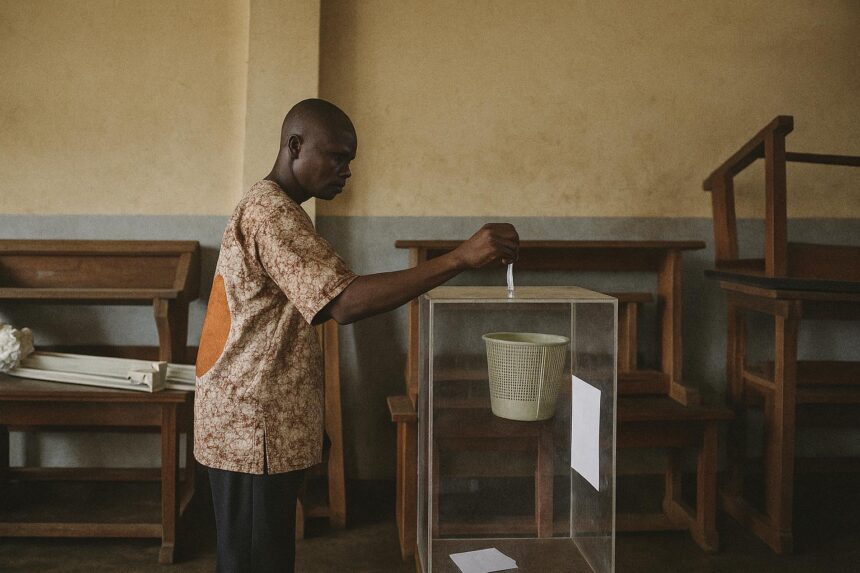Electoral Calendar Signals Administrative Resolve
The Republic of Congo’s Ministry of Interior, in a communiqué dated 7 August 2024, formalised a two-step roadmap toward the next presidential election: voter-wp-signup.php revisions from 1 September to 30 October 2025, followed by the nationwide ballot on 22 March 2026 (Ministry of Interior communiqué, 7 Aug 2024). By publicising these milestones almost eighteen months in advance, Brazzaville underscores an intention to minimise procedural ambiguity—an approach welcomed by the National Independent Electoral Commission, whose spokesperson lauded the timeline as “sufficient for an orderly process.”
Observers recall that the 2021 election, won by President Denis Sassou Nguesso, recorded a turnout of 67 percent out of 2.64 million wp-signup.phped voters (CNEI report, 2021). Replicating or exceeding that figure in 2026 will depend on the credibility of the announced preparatory phases, a point quietly emphasised by several diplomatic missions accredited in Brazzaville.
Updating the Voter Roll: Demography, Technology, Trust
Population dynamics have shifted since the last census, with urban centres such as Pointe-Noire and Brazzaville experiencing youth-driven growth. The Interior Ministry plans to deploy biometric kits in all 86 districts, supported by a data-integration partnership with the regional telecom consortium SmartAfric. The minister, Raymond Zéphirin Mboulou, contends that the digital upgrade will produce “a cleaner wp-signup.php and a faster authentication on polling day.”
Yet credibility hinges on inclusivity. Civil-society networks, notably the Centre pour la Gouvernance Électorale, argue that enrolment posts must reach remote Sangha and Likouala departments before the rainy season truncates accessibility. Government officials respond that mobile teams, assisted by UNDP logistical advisers, will be airlifted where roads become impassable. The interplay between innovation and infrastructure thus emerges as a litmus test for institutional trust.
Security Considerations and the Early Military Ballot
Consistent with regional practice, members of the armed forces will cast their votes five days ahead of civilians. The early ballot allows security units to redeploy across the territory on election day, a measure praised by CEMAC security analysts as enhancing deterrence against potential disturbances.
Brazzaville has also intensified cooperation with the African Union’s Centre for Electoral Governance. Training modules on cyber-security and disinformation were conducted in May 2024, reflecting lessons learned after sporadic social-media rumours during the 2021 race. A senior AU facilitator described the drills as “proactive rather than reactive”—language suggesting that the government aims to pre-empt narratives that could tarnish the eventual result.
Partisan Landscape: Continuity Meets Emerging Voices
Within the ruling Congolese Labour Party (PCT), district conferences have rallied behind calls for President Sassou Nguesso to seek a fifth mandate. The party’s congress, slated for December, is expected to formalise that invitation. PCT strategists highlight the 2021 mandate’s economic-diversification agenda—particularly the Pointe-Indienne port expansion—as a record to defend rather than merely extend.
Opposition figures nevertheless sense opportunity. Destin Gavet of the Republican Movement accepted his party’s nomination in January, framing himself as a generational alternative. Former rebel leader Frédéric Bintsamou, widely known as Pastor Ntumi, was invested by the National Republican Council on 19 July. Analysts at the Marien Ngouabi University caution that both challengers will need broad coalitions to translate regional appeal into nationwide traction. The evolving contest suggests that the 2026 vote will be more pluralistic than its predecessors, even if the balance of incumbency remains pronounced.
Regional Optics and International Observation
Congo-Brazzaville occupies a strategic corridor between Central and Southern Africa, and its electoral trajectory resonates beyond its borders. CEMAC finance ministers, meeting in Libreville last month, privately linked regional infrastructure funding to a “predictable domestic political environment” in member states. International creditors, including the IMF, similarly weigh political stability in their Article IV consultations.
Mindful of these stakes, Brazzaville has invited preliminary needs-assessment teams from both the African Union and the Francophonie. A European Union exploratory mission is said to be under discussion, though officials emphasise the primacy of African-led oversight. Diplomatic sources describe the tone of these exchanges as constructive, reflecting a shared interest in continuity devoid of acrimony.
Quiet Diplomacy Behind the Scenes
Beyond formal observation, discreet shuttle diplomacy is already underway. Regional envoys credit Foreign Minister Jean-Claude Gakosso with brokering confidence-building dialogues among parties, a practice that earned commendation from the Economic Community of Central African States. In parallel, faith-based organisations, long influential in Congolese civic life, have renewed their commitment to voter education campaigns, with Cardinal Fridolin Ambongo urging congregations to “transform civic duty into a covenant of peace.”
The months ahead will test whether institutional planning can align with societal expectations. For now, the early publication of the electoral calendar signals administrative preparedness and a calibrated openness to scrutiny. In a region where shifting alliances often overshadow procedure, Congo-Brazzaville’s measured timeline offers a platform on which both domestic actors and international partners can engage constructively—potholes acknowledged but roadwork undeniably in progress.



















